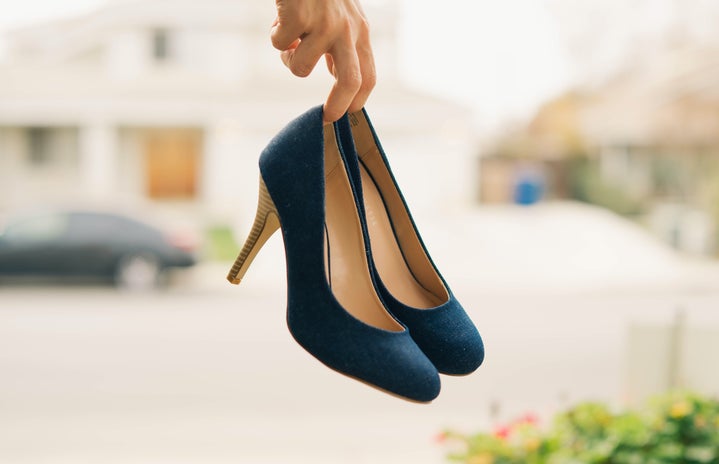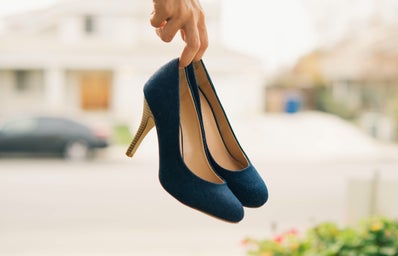No woman should have to base their sartorial choices on the fear of being raped. There is no need for that hazardous hesitation we experience when we go out with our friends- is my skirt too short? Are my heels too high? Will I attract the wrong kind of attention? A woman’s choice of clothing is not, and never will be, an enticement to rape or sexually assault them. This idea that “we are asking for it” for dressing “promiscuously” is the biggest myth that surrounds rape culture, it’s ridiculous and people who believe it are ignorant.
(Photo Credit: www.worldtribune.com)
In the UK alone, 85,000 women and 12,000 men are raped per year. This is 11 rapes per hour and these are only adult cases that have been reported. A third of people believe women who flirt or dress provocatively are partially responsible for their rape and only 5.7% of reported cases end in incarceration of the rapist. The statistics are minuscule, not helped by the unfortunate amount of biased misogynists that sit in positions of power in our judicial systems. For example, in Canada in 2006, a 26 year old woman’s rapist received zero jail time for his crime: dragging a woman in to the woods in the middle of the night and violating her body. The judge said they met under “inviting circumstances”, she made her “intentions publicly known she wanted to party”, she was wearing a “tube top with no bra, high heels and plenty of make up”. In other words: she was asking for it, right? There is nothing wrong with a woman wanting to feel attractive when she goes out, for wanting to feel comfortable in what she wears and how she presents her body. Whether that means wearing a mini skirt and a crop top, or a baggy jumper and leggings- the choice is yours and the fact that often victims in rape cases are persecuted for their sexual agency and freedom to express themselves through clothes is truly and utterly wrong.
(Photo Credit: SASS)
The amount of people who believe clothing choice is an invitation, or even a justification, to rape is incredulous- but the reality is, that women have been violated whether they reveal a bit of skin in a low cut top or cover up in a burka. Either way, it is NEVER our fault and what is so sad is that many of us begin to blame ourselves, we don’t believe we are the victim. If society tells us it was wrong to wear those heels, if the judge tells us we were dressed too promiscuously, if they tell us we were asking for it- what did we expect? We yet again become victim. Take Jenni Murray who came forward with her story in 2010 of when she was raped in 1969 at 19 by a much older man:
“I was wearing what my mother described, disapprovingly, as an extended belt, but what to me was just a fashionable mini skirt. We’d been drinking in the pub and carried on drinking at the man’s flat. It didn’t occur to me to report what had happened to the police because I didn’t think anyone would believe me and I would have been too embarrassed to reveal what a vulnerable position I’d placed myself in. After all, hadn’t I worn a short skirt, been drinking and willingly gone back to his house?”
Despite the incident occurring nearly 50 years ago, her words are strikingly resonant. So many women are fearful of reporting what has happened to them, in fear of being called a liar, being labelled a “slut”, being told that YOU were asking for it, it was all your fault. Rape can never be justified by a little flirting, being a little too drunk, wearing a skirt that is a little to short- we should never have to experience regretting our sartorial choices for reasons that are in no way our fault- our bodies are our own and we can do, or not do, what we like with them. Brock Turner’s victim was not dressed like a “slut”, she was wearing in her own words “a beige cardigan to a frat party like a librarian”, her sister teased her conservative outfit choice. If our clothing is the green flag to violate our bodies- surely she wasn’t asking for it?
(Picture Credit: www.adforum.com)
Whilst some of our clothes may present a temptation to come over and talk to us and to ask for our name, maybe even our number, a temptation to rape us they are not. We have every right to dress how we please, to feel confident and attractive, but with rape culture still prevalent in many peoples’ attitudes, the trivialisation and normalisation of sexual abuse and rape still exists. Dress codes in schools do not help. By all means you should dress appropriately- heels and a sparkly dress is probably not the best choice for history class- but not being able to bare your shoulders in summer in fear that male teachers and students will get distracted is ridiculous. This enforces rape culture. Our bodies are our own and we have every right to wear what we like.


